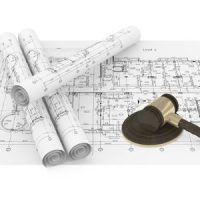Understanding The Statute Of Limitations On Construction Lawsuits

There is no simple answer for what the Statute of Limitations is on construction litigation cases. Many of the classifications depend on the type of construction lawsuit you are filing, whether it be against a contractor, construction company or property owner. Florida Statute 95.11 breaks down the “Limitations other than for the recovery of real property” as follows:
Within 4 Years:
- “An action founded on the design, planning, or construction of an improvement to real property, with the time running from the date of actual possession by the owner, the date of the issuance of a certificate of occupancy, the date of abandonment of construction if not completed, or the date of completion of the contract or termination of the contract between the professional engineer, registered architect, or licensed contractor and his or her employer, whichever date is latest; except that, when the action involves a latent defect, the time runs from the time the defect is discovered or should have been discovered with the exercise of due diligence.
In any event, the action must be commenced within 10 years after the date of actual possession by the owner, the date of the issuance of a certificate of occupancy, the date of abandonment of construction if not completed, or the date of completion of the contract or termination of the contract between the professional engineer, registered architect, or licensed contractor and his or her employer, whichever date is latest.
However, counterclaims, cross-claims, and third-party claims that arise out of the conduct, transaction, or occurrence set out or attempted to be set out in a pleading may be commenced up to 1 year after the pleading to which such claims relate is served, even if such claims would otherwise be time barred. With respect to actions founded on the design, planning, or construction of an improvement to real property, if such construction is performed pursuant to a duly issued building permit and if a local enforcement agency, state enforcement agency, or special inspector, as those terms are defined in s. 553.71, has issued a final certificate of occupancy or certificate of completion, then as to the construction which is within the scope of such building permit and certificate, the correction of defects to completed work or repair of completed work, whether performed under warranty or otherwise, does not extend the period of time within which an action must be commenced. Completion of the contract means the later of the date of final performance of all the contracted services or the date that final payment for such services becomes due without regard to the date final payment is made.”
- An action for injury to a person founded on the design, manufacture, distribution, or sale of personal property that is not permanently incorporated in an improvement to real property, including fixtures.”
WITHIN 2 YEARS
- An action for wrongful death on a construction site
WITHIN 1 YEAR
- An action to enforce an equitable lien arising from the furnishing of labor, services, or material for the improvement of real property.
If you are uncertain as to how your case is likely to be classified, the best way to know with any degree of certainty an experienced construction lawyer or personal injury attorney.
